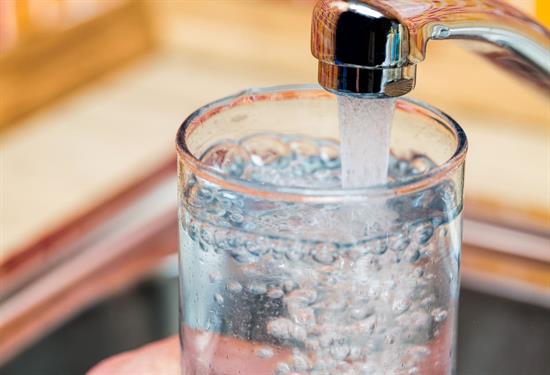Press Releases
Pingree Applauds Biden-Harris Administration’s Final Rule to Replace Lead Pipes, Ensure Clean Drinking Water for Maine Schools and HomesCongresswoman Pingree has long pushed for a strong final rule requiring drinking water systems across the country to identify and replace lead pipes
Washington,
October 8, 2024
Maine First District Congresswoman Chellie Pingree today praised the Biden-Harris Administration and the Environmental Protection Agency (EPA) for their final rule requiring states to identify and replace lead pipes within 10 years—a provision Pingree has long pushed for. The Lead and Copper Rule Improvements (LCRI) also require more rigorous testing of drinking water and a lower threshold requiring communities to take action to protect people from lead exposure in water. In addition, the final rule improves communication within communities so that families are better informed about the risk of lead in drinking water, the location of lead pipes, and plans for replacing them. Alongside the Lead and Copper Rule Improvements, EPA is announcing $2.6 billion in newly available funding to improve drinking-water infrastructure, including $24.9 million in Maine. Made possible through the landmark Bipartisan Infrastructure Law, the federal funding will flow through the Drinking Water State Revolving Funds (DWSRFs) and will support lead-pipe replacement and other inventory projects in Maine. Communities may also apply directly for an additional $35 million in competitive grant funding for reducing lead in drinking water. “I’m thrilled that the Biden Administration is delivering on its promise to improve our country’s drinking water and safeguard the American people from dangerous exposure to lead and other harmful contaminants,” Pingree said. “All Americans deserve access to clean, safe, reliable drinking water. Nearly 40 years after lead pipes were banned in the U.S., we’re finally taking the necessary steps to ensure that all outdated systems and pipes are replaced—including right here in Maine. This $24.9 million in funding will help communities across our state make much-needed needed investments to modernize their drinking-water infrastructure. Once again, the transformative Bipartisan Infrastructure Law is delivering real, tangible benefits to the people of Maine—and citizens across the country.” “We’ve known for decades that lead exposure has serious long-term impacts for children’s health. And yet, millions of lead service lines are still delivering drinking water to homes,” said EPA Administrator Michael S. Regan. “President Biden is putting an end to this generational public health problem. With the Lead and Copper Rule Improvements and historic investments in lead pipe replacement, the Biden-Harris Administration is fulfilling its commitment that no community, regardless of race, geography, or wealth, should have to worry about lead-contaminated water in their homes.” The Bipartisan Infrastructure Law provides $50 billion to support upgrades to the nation’s drinking water and wastewater infrastructure. This includes $15 billion over five years dedicated to lead service line replacement and $11.7 billion of general Drinking Water State Revolving Funds that can also be used for lead service line replacement. Pingree, who serves as Ranking Member of the House Appropriations Interior and Environment Subcommittee, which oversees the EPA, has long pushed for a strong final rule requiring drinking water systems across the country to identify and replace lead pipes. In September, she and her Congressional colleagues called on the White House Office of Management and Budget to expedite its review of the Biden Administration’s proposed Lead and Copper Rule Improvements rule, which would lower the lead action level to better protect human health and require water systems to replace old and deteriorating lead pipes within a decade. Across Maine and the U.S., communities face threats to their drinking water from a number of contaminants, including lead, arsenic, nitrates, volatile organic compounds, PFAS, and others. EPA estimates that up to 9 million homes are served through legacy lead pipes across the country, many of which are in lower-income communities and communities of color, creating disproportionate lead exposure burden for these families. This Congress, Pingree reintroduced her bipartisan, bicameral Healthy Drinking Water Affordability Act, or the Healthy H2O Act, to provide grants for water testing and treatment technology directly to individuals and nonprofits in rural communities. ### |

